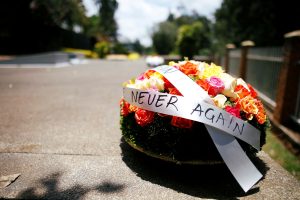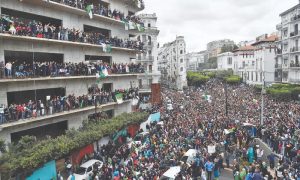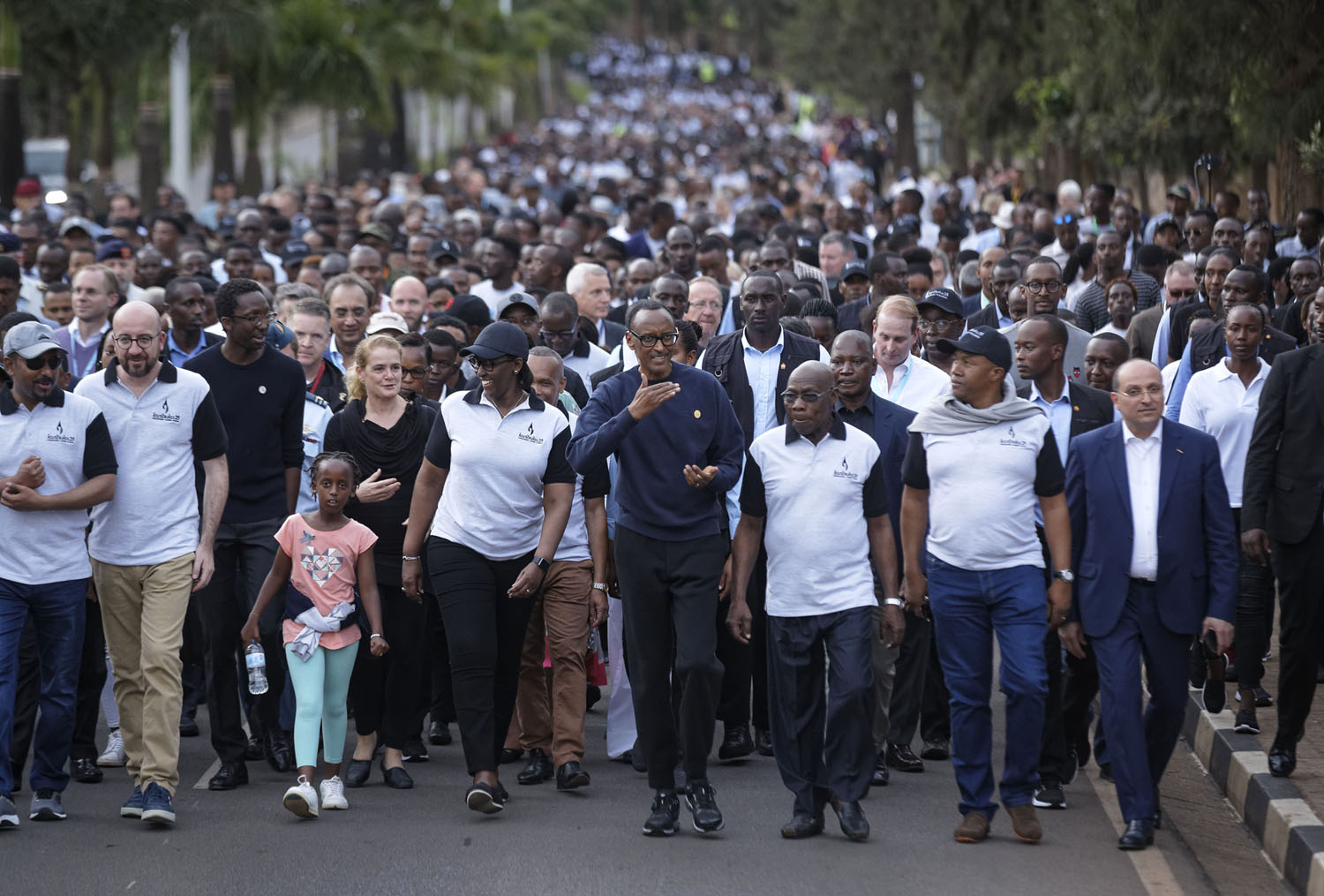It has been a week of different strokes of Africa’s nightmare of a life. While it came in the form of reflective mourning and a defiant ‘Never Again’ in Rwanda 25 years after an orgy of bloodletting, it came in the form of a protest at last in Abuja against a 21st puzzle that a state with Nigeria’s panoply of security agencies cannot deal decisively with manifold insecurity threats, beyond Boko Haram that has fully re-charged.
It was Zamfara people that protested in Abuja but it could have been any other group – either from the East where herdsmen or ‘herdsmen’ struck, leaving misery and fear behind Or the Adara community in Southern Kaduna whose own tragedy is compounded by the fact that their own story is not even being told. Yet, most have relocated from their original settlements to a central space. Because, not to do so is to risk vulnerability to insecurity in multiple forms.


Rwanda genocide survivors and perpetrators walk to crop fields in a reconciliation village
While the Rwandans are reflecting on what happened and are now in a position to say, NEVER AGAIN, it is doubtful if the Nigerians are reflecting enough on what is happening across the country and what could happen. How great it would have been if the leaders in the cover picture above, taken along with the caption from The Atlantic acted together to prevent the genocide! Or is it the case that social change and blood go together in human history, even with the technological and political sophistication in the world today? Does a country need to sacrifice nearly a million to achieve development?
It also came in the form of a bloodier turn in Libya where one of the warlords, General Khalifa Haftar is on the March but the war in Libya has its international politics. What to look for is the shadow parties in the contest and who can they be if not those who have the money and the arms and for whom global primacy makes sense? At least, everybody knows that General Hafter had CIA links.
In Sudan, it is a crackdown on protesters by the Sudanese regime. In South Africa, the manifestation came in the form of a xenophobic rage that claimed two more Nigerians. Beyond the figure, it seems xenophobia in South Africa has come to stay. It is a bad story for the African spirit and at the core of the African nightmare because it cannot be justified.

When Algerians poured out in a case of ‘power of the people’ versus ‘the people in power’!

Now, former Algerian leader, Abdelaziz Bouteflika who started heroically only to degenerate to clinging to power in spite of health and other challenges
The Algerians managed to eventually retire Abdelaziz Bouteflika from power except that, before anyone could say good riddance to a stinking bad rubbish, old man Abdelkader Bensalah surfaced as the interim leader. Well, no one can say what any man in power would be doing with it but Bensalah is not coming from outside. He has been part of the system for nearly two decades and that is probably why the protesters are not calmed with his promise of elections.
The only distinguishing feature of the crisis in Algeria is that Algerians have an advantage in that they fought for independence and they know what being a free people means. They are, therefore, not likely to frame a crisis of kleptocracy and misgovernance as ethno-regional problems and dissipate energy on such contextually unproductive categories. Many of their counterparts across Africa lack that advantage and are, therefore, vulnerable to elite and external manipulation.
Can Africa find its way out of this mess?




























